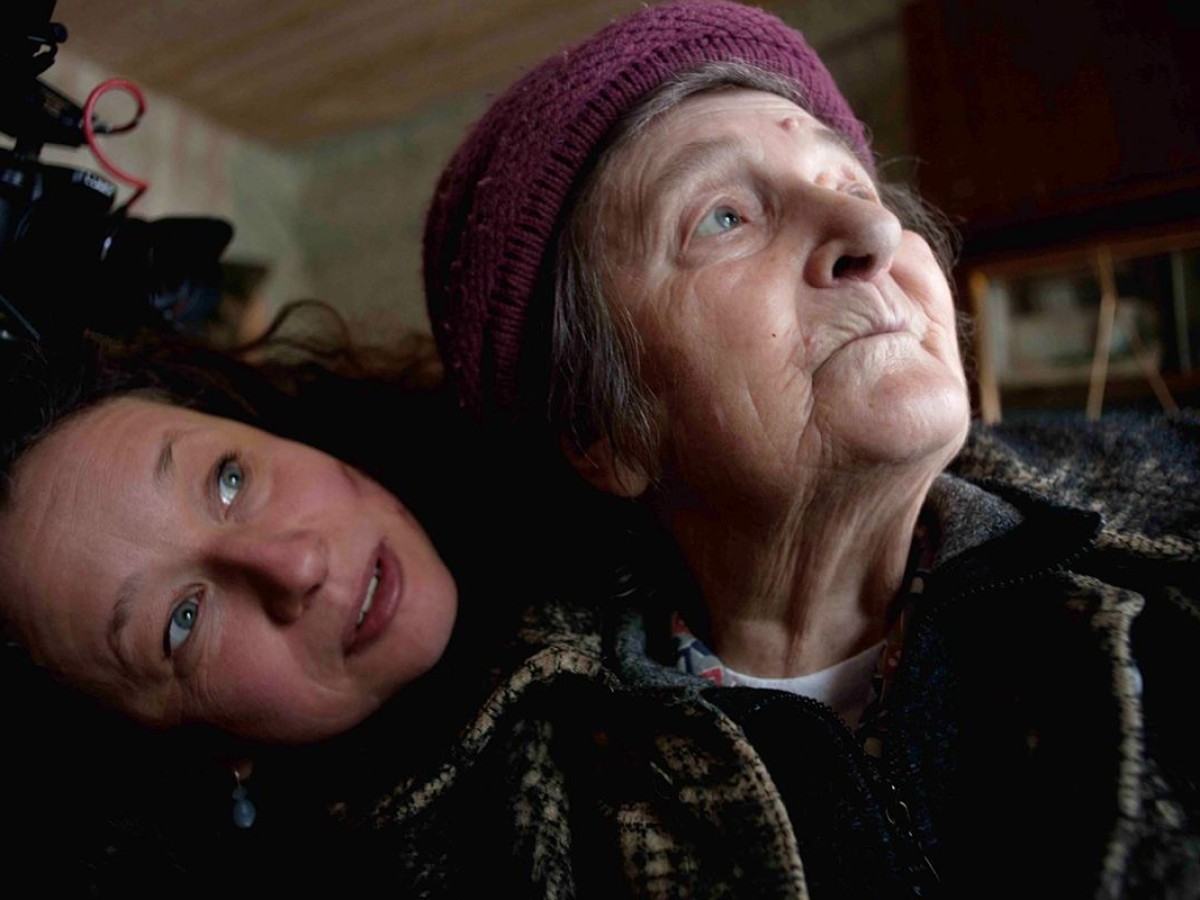Crossing Europe Presents:
Aliona van der Horst
May 8, 2024
It is now a beautiful tradition that after Crossing Europe Film Festival in Linz, we present selected works from the festival at the Film Museum. Artistic Directors Sabine Gebetsroither and Katharina Riedler have chosen two documentaries from their Tribute to Dutch filmmaker Aliona van der Horst, who will be present with both festival directors at the screening.
"Crossing Europe Film Festival in Linz (April 30 to May 5) has dedicated itself again this year to contemporary, courageous, and artistically ambitious European cinema and those involved in it. In 2024, the Tribute program, devoted each year to an exciting personality of contemporary European cinema, honors the Dutch documentary filmmaker Aliona van der Horst. In collaboration with Crossing Europe, two of her films shown at the festival will be presented on May 8th at the Film Museum.
Van der Horst was born in Moscow in 1970 to a Russian mother and grew up in the homeland of her Dutch father. Russia's turbulent history, the politically caused wounds within Russian society, and her own roots are recurring topics in van der Horst's personal, essayistic works. In Liefd is aardappelen / Love is Potatos (2017), for instance, she sets off on a gripping journey into her mother's childhood in Russia under Stalin's reign of terror. And yet, her work transcends geographic and biographical borders. In her latest work, Gerlach (2023, co-directed by Luuk Bouwman), she accompanies one of the Netherland's last traditional farmers, who unflinchingly fights against the surrounding and increasingly encroaching industry.
With her poetic approach to narrative and visual composition, Aliona van der Horst has created an original and clear film language throughout more than 25 years of filmic work, which demands to be seen on the big screen. She manages to capture intimate moments and at the same time tell stories that are both compelling and universal. Since the start of her film career in 1997, her films, which circle around questions such as how the lives of common people are marked by major historical events, have been awarded multiple times internationally." (Sabine Gebetsroither, Katharina Riedler / Translation: Ted Fendt).
It is now a beautiful tradition that after Crossing Europe Film Festival in Linz, we present selected works from the festival at the Film Museum. Artistic Directors Sabine Gebetsroither and Katharina Riedler have chosen two documentaries from their Tribute to Dutch filmmaker Aliona van der Horst, who will be present with both festival directors at the screening.
"Crossing Europe Film Festival in Linz (April 30 to May 5) has dedicated itself again this year to contemporary, courageous, and artistically ambitious European cinema and those involved in it. In 2024, the Tribute program, devoted each year to an exciting personality of contemporary European cinema, honors the Dutch documentary filmmaker Aliona van der Horst. In collaboration with Crossing Europe, two of her films shown at the festival will be presented on May 8th at the Film Museum.
Van der Horst was born in Moscow in 1970 to a Russian mother and grew up in the homeland of her Dutch father. Russia's turbulent history, the politically caused wounds within Russian society, and her own roots are recurring topics in van der Horst's personal, essayistic works. In Liefd is aardappelen / Love is Potatos (2017), for instance, she sets off on a gripping journey into her mother's childhood in Russia under Stalin's reign of terror. And yet, her work transcends geographic and biographical borders. In her latest work, Gerlach (2023, co-directed by Luuk Bouwman), she accompanies one of the Netherland's last traditional farmers, who unflinchingly fights against the surrounding and increasingly encroaching industry.
With her poetic approach to narrative and visual composition, Aliona van der Horst has created an original and clear film language throughout more than 25 years of filmic work, which demands to be seen on the big screen. She manages to capture intimate moments and at the same time tell stories that are both compelling and universal. Since the start of her film career in 1997, her films, which circle around questions such as how the lives of common people are marked by major historical events, have been awarded multiple times internationally." (Sabine Gebetsroither, Katharina Riedler / Translation: Ted Fendt).
